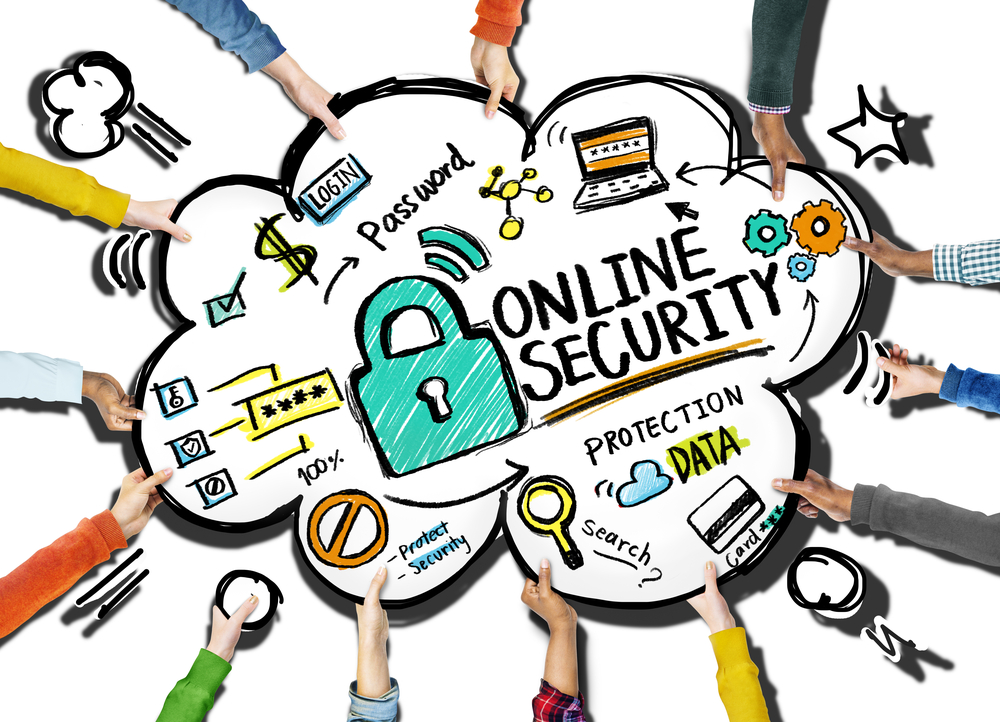You would think that with the growing number of cyber threats these days, more people would be catching on to the idea of online security, however, that doesn’t seem to be the case. Various online surveys showed that in spite of hacking becoming a lucrative business for cyber-criminals, people still are very lax about becoming the next hacking victim. It doesn’t take a tech savvy mind to stay safe online; it can be done with a little online common sense.
1. Log out of your Accounts.
The first thing to remember is to always log out of your online accounts. In example, being a writer allows me to travel, and while I’m on the road I like to check my bank account and bitcoin wallet regularly. Well, logging into accounts with public Wi-Fi is a risky venture already, but not logging out of the accounts, could spell disaster for any funds I want to keep in my possession. Logging out of your accounts after use could make the difference in whether you wake up with the same account balance, or if a criminal gets to have a great weekend on your dime.
2. Update your passwords.
I also like to update my passwords regularly. In the event that you were one of the unlucky millions that has ended up on the dark net for sale in the form of personal information, simply changing your existing password would make your account secure again. I also like to keep my passwords complexity out of this world.
What do I mean by complexity? Well, say your name is John, and you were born in 1990. Your first choice for a password is probably going to be one of the many variations like john90, or J1990. Well, no matter what you think, this isn’t very clever. A professional cyber-criminal wouldn’t have to work very hard to figure this out. Make him work harder. After all, the whole idea behind cyber crime has been “ease of access”. The more complex your passwords, the harder it will be for anyone, even yourself sometimes, to figure them out.
3. Secure your Wi-Fi.
Out of all the technology Internet Service Providers offer, home Wi-Fi has got to be the most popular option for people. Who doesn’t want it in their home? Not having to be in front of a bulky PC connected to miles of cable and wires is a great thing. One thing people forget is to secure their home Wi-Fi connection. I can’t tell you how many programs I have found personally that offer the user very easy options on cracking the unlucky persons unsecure Wi-Fi. While these programs were designed for IT pro’s to be able to check for network vulnerabilities, hackers have found a way to use this technology for personal gain, rather than network security.
There are free as well as paid programs that offer people with normal to little IT skill the chance to secure Wi-Fi and routers from malicious attacks and spying. They operate like regular VPN technology, but are specially designed to protect Wi-Fi and routers from unwanted guests. My personal favorite would be Cyber Ghost. Since the new update, even free users have the option of completely securing their routers and internet connections.
4. Watch what and where you download from.
Another important thing I’d like to bring to attention are downloading habits. It doesn’t matter that you know a guy who knows a guy who pirates movies and music safety with no issues and gave you the names of programs that help you stay safe. Chances are, the pirate in this case didn’t care enough to explain fully. While things like a strong Anti-virus, and Malware detector could save you some trouble, hackers have found ways to mask malicious code so these foul intended programs go undetectable throughout the download process.
It’s impossible for a regular person who just wants to watch the new episode of American Horror Story to catch these codes before any damage is actually done. Downloading from untrusted sites, and opening phishing emails are also to be avoided. Phishing emails would be the ones you find in your inbox about the relative of a dead African Prince who wants nothing more than to send you that cool $5.3 million dollars that was somehow willed to you by said Prince of Africa.
Downloading from unknown sites goes deeper than if you have heard of it before or not. Even in the top five spots on Google can be loaded with malicious downloads. There are also browser ad-ons that help less tech savvy people keep watch on the sites they visit. Hackers will often look for high traffic, popular online shopping sites, set up phishing links that when clicked on, takes you to a remarkably similar looking site. So real looking that most users don’t find out until thousands of dollars in damage has been done.
Using common sense, and thinking like cyber-criminals has helped me avoid problems online. Knowledge is the biggest defense against these types of attacks. If you learn what signs to look for, and take steps to detect, and avoid these threats, your chances of being the next cyber victim in a hacker’s payday are decreased enormously.
If you liked this article, follow us on Twitter @themerklenews and make sure to subscribe to our newsletter to receive the latest bitcoin, cryptocurrency, and technology news.

